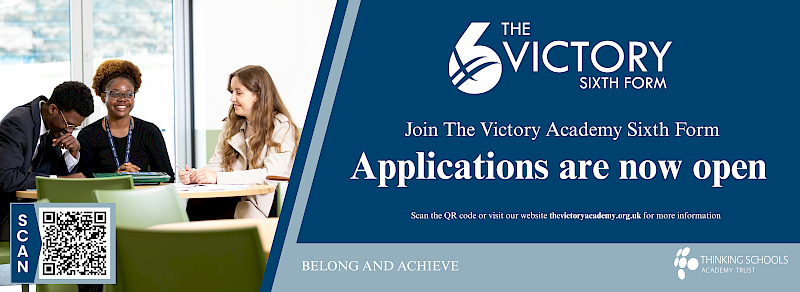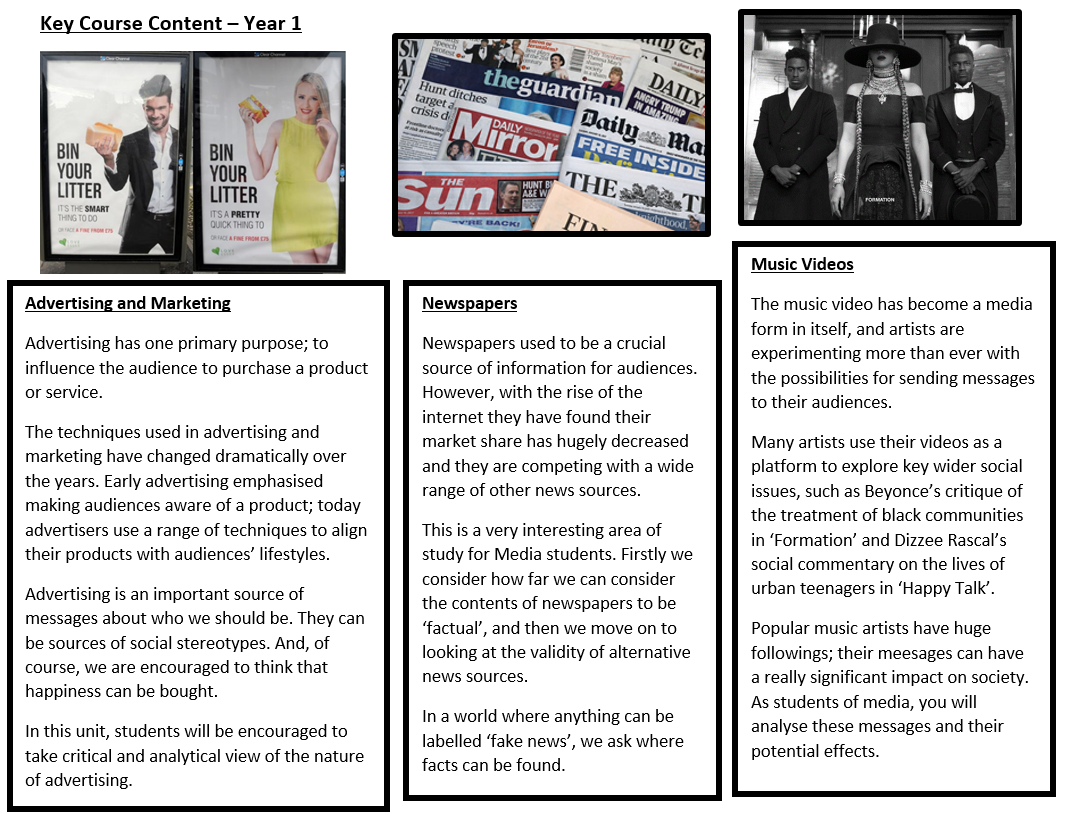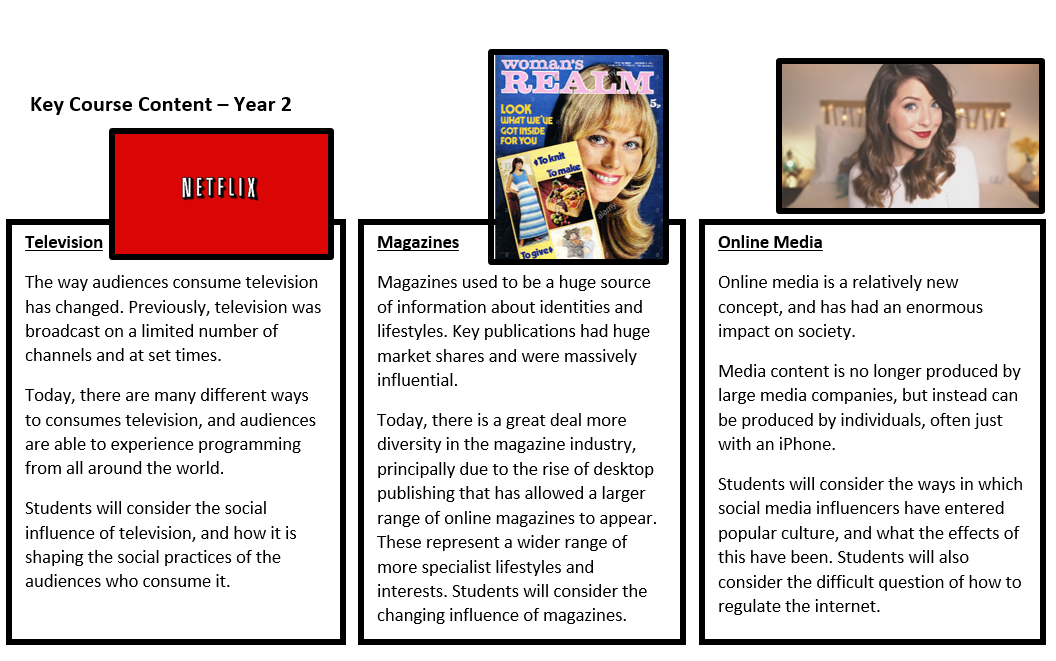
Applications for The Victory Academy Sixth Form are now open! To apply please click here.

Applications for The Victory Academy Sixth Form are now open! To apply please click here.
The media studies curriculum aims to develop students’ confidence in critically engaging with media texts of all types. Across the course of study at KS5, students will develop an understanding of and analytical approach to television, radio, music, video games, advertising, film, print media and online and social participatory media. Students will also develop a strong appreciation of the significance of the context in which a text is produced.
The curriculum is designed to encourage critical evaluation skills and personal approaches to a variety of texts. Students will be encouraged to consider their own experience of the media industry and analytically consider the role it plays in their own lives. There are frequent opportunities for cross-curricular links with English language, history, psychology, criminology and sociology. Students will become aware of how media texts can be purposefully manipulative, and the strategies that media production teams have utilised and refined over the last century.

The media curriculum is underpinned by the key concepts of media studies: industry, audience, media language and representation. The media curriculum includes a deliberate focus on broadening students’ media technical language, supported by our knowledge organisers, as students are actively encouraged to experiment with the application and use of technical and theoretical terminology. The development of analytical skills across the first year of the course also builds the familiarity with the requirements of the exams and frequent practice of key exam questions and styles is built in for termly review.
The Non-Exam Assessment provides the opportunity to independently approach a topic of their choice from the Eduqas list. This independent coursework task allows students to creatively design and produce a media product of their own and actively apply the theoretical approaches to the industry that they have acquired across the course. This embodies the overriding intent of the media course, which is to encourage passionate, personal interaction with this vast, creative and constantly shifting industry.


The curriculum is designed to help the students to acquire a large body of knowledge over a two-year period. All students will need to successfully master a broad bank of technical language and be able to apply this to analyse a range of texts. Students will also need to be able to construct well-argued, analytical and evaluative essays.
Students are regularly formatively assessed via short answer knowledge recall questions, and through extended writing tasks. Additionally, there is regular interleaving of knowledge from across the course content to ensure students are confident. Termly assessment data is used to judge the success of the curriculum and progress towards mastery, with teaching time allocated to the re-teaching of specific knowledge. Students are encouraged to formulate both personal and critical responses to texts, both seen and unseen, and peer and self-assessment are used to support students to develop into independently capable learners.
Both the GCSE and A Level have 2 exam components and one coursework component, providing opportunities for students to demonstrate theoretical and practical application of the knowledge they gain across the course.
| Paper | Length/Weight |
|---|---|
| Component 1
Exam | 2.25 hours
35% of A Level |
| Component 2
Exam | 2.5 hours
35% of A level |
| Component 3
Non-Exam Assessment | Coursework Portfolio
30% of A Level |
Studying Media equips students for a range of opportunities beyond KS5. This might include:
This BBC Bitesize resource is excellent for beginning exploration of the broad range of opportunities available with qualifications in media studies: https://www.bbc.co.uk/bitesize/groups/cljdxvywe6rt